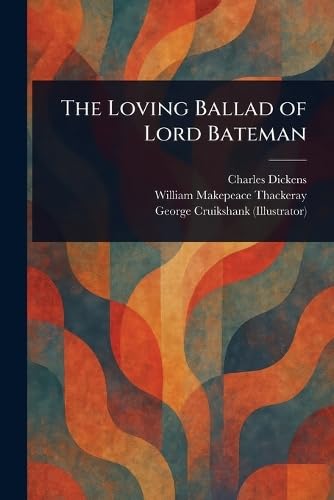
Authors

William Makepeace Thackeray was an English novelist, satirist, and journalist, best known for his keen social commentary and his novel Vanity Fair (1847–1848). His works often explored themes of ambition, hypocrisy, and the moral failings of British society, making him one of the most significant literary figures of the Victorian era. Born in Calcutta, British India, he was sent to England for his education after his father’s death. He attended Charterhouse School, where he developed a distaste for the rigid school system, and later enrolled at Trinity College, Cambridge. However, he left without earning a degree, instead traveling in Europe and pursuing artistic ambitions. After losing much of his inheritance due to bad investments, Thackeray turned to writing for a living. He contributed satirical sketches, essays, and stories to periodicals such as Fraser’s Magazine and Punch, gradually building a reputation for his sharp wit and keen observational skills. His breakthrough came with Vanity Fair, a panoramic satire of English society that introduced the enduring character of Becky Sharp, a resourceful and amoral social climber. Thackeray’s later novels, including Pendennis (1848–1850), The History of Henry Esmond (1852), and The Newcomes (1853–1855), continued to explore the lives of the English upper and middle classes, often focusing on the contrast between personal virtue and social ambition. His historical novel Henry Esmond was particularly praised for its detailed 18th-century setting and complex characterization. In addition to his fiction, Thackeray was a noted public speaker and essayist, delivering lectures on the English humorists of the 18th century and on The Four Georges, a critical look at the British monarchy. Despite his literary success, he lived with personal struggles, including the mental illness of his wife, Isabella, which deeply affected him. He remained devoted to his two daughters and was known for his kindness and generosity among his friends and colleagues. His works remain widely read, appreciated for their incisive humor, rich characterizations, and unflinching critique of social pretensions.

Charles John Huffam Dickens (1812-1870) was a writer and social critic who created some of the world's best-known fictional characters and is regarded as the greatest novelist of the Victorian era. His works enjoyed unprecedented popularity during his lifetime, and by the twentieth century critics and scholars had recognised him as a literary genius. His novels and short stories enjoy lasting popularity. Dickens left school to work in a factory when his father was incarcerated in a debtors' prison. Despite his lack of formal education, he edited a weekly journal for 20 years, wrote 15 novels, five novellas, hundreds of short stories and non-fiction articles, lectured and performed extensively, was an indefatigable letter writer, and campaigned vigorously for children's rights, education, and other social reforms. Dickens was regarded as the literary colossus of his age. His 1843 novella, A Christmas Carol, remains popular and continues to inspire adaptations in every artistic genre. Oliver Twist and Great Expectations are also frequently adapted, and, like many of his novels, evoke images of early Victorian London. His 1859 novel, A Tale of Two Cities, set in London and Paris, is his best-known work of historical fiction. Dickens' creative genius has been praised by fellow writers—from Leo Tolstoy to George Orwell and G. K. Chesterton—for its realism, comedy, prose style, unique characterisations, and social criticism. On the other hand, Oscar Wilde, Henry James, and Virginia Woolf complained of a lack of psychological depth, loose writing, and a vein of saccharine sentimentalism. The term Dickensian is used to describe something that is reminiscent of Dickens and his writings, such as poor social conditions or comically repulsive characters. On 8 June 1870, Dickens suffered another stroke at his home after a full day's work on Edwin Drood. He never regained consciousness, and the next day he died at Gad's Hill Place. Contrary to his wish to be buried at Rochester Cathedral "in an inexpensive, unostentatious, and strictly private manner," he was laid to rest in the Poets' Corner of Westminster Abbey. A printed epitaph circulated at the time of the funeral reads: "To the Memory of Charles Dickens (England's most popular author) who died at his residence, Higham, near Rochester, Kent, 9 June 1870, aged 58 years. He was a sympathiser with the poor, the suffering, and the oppressed; and by his death, one of England's greatest writers is lost to the world." His last words were: "On the ground", in response to his sister-in-law Georgina's request that he lie down. (from Wikipedia)